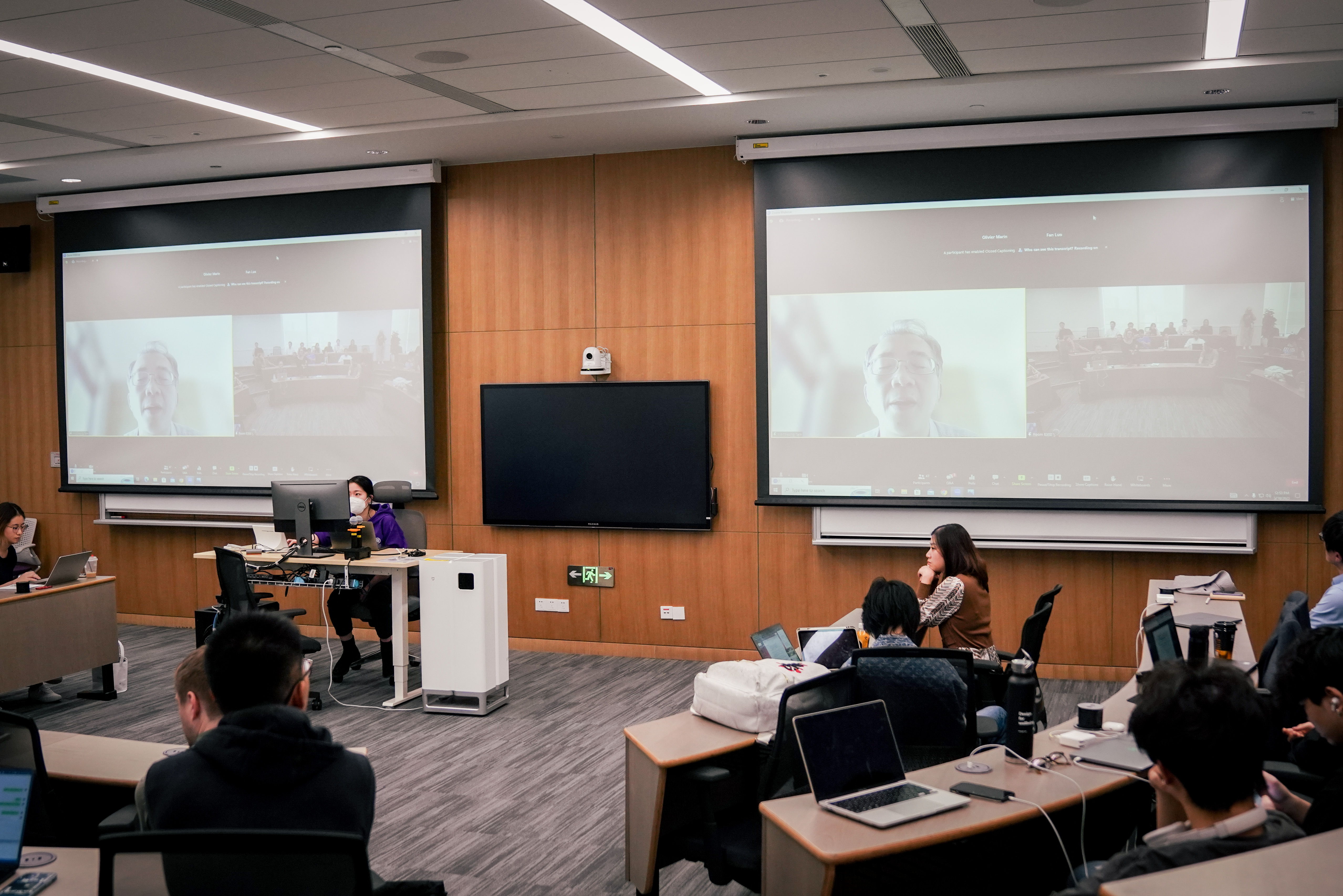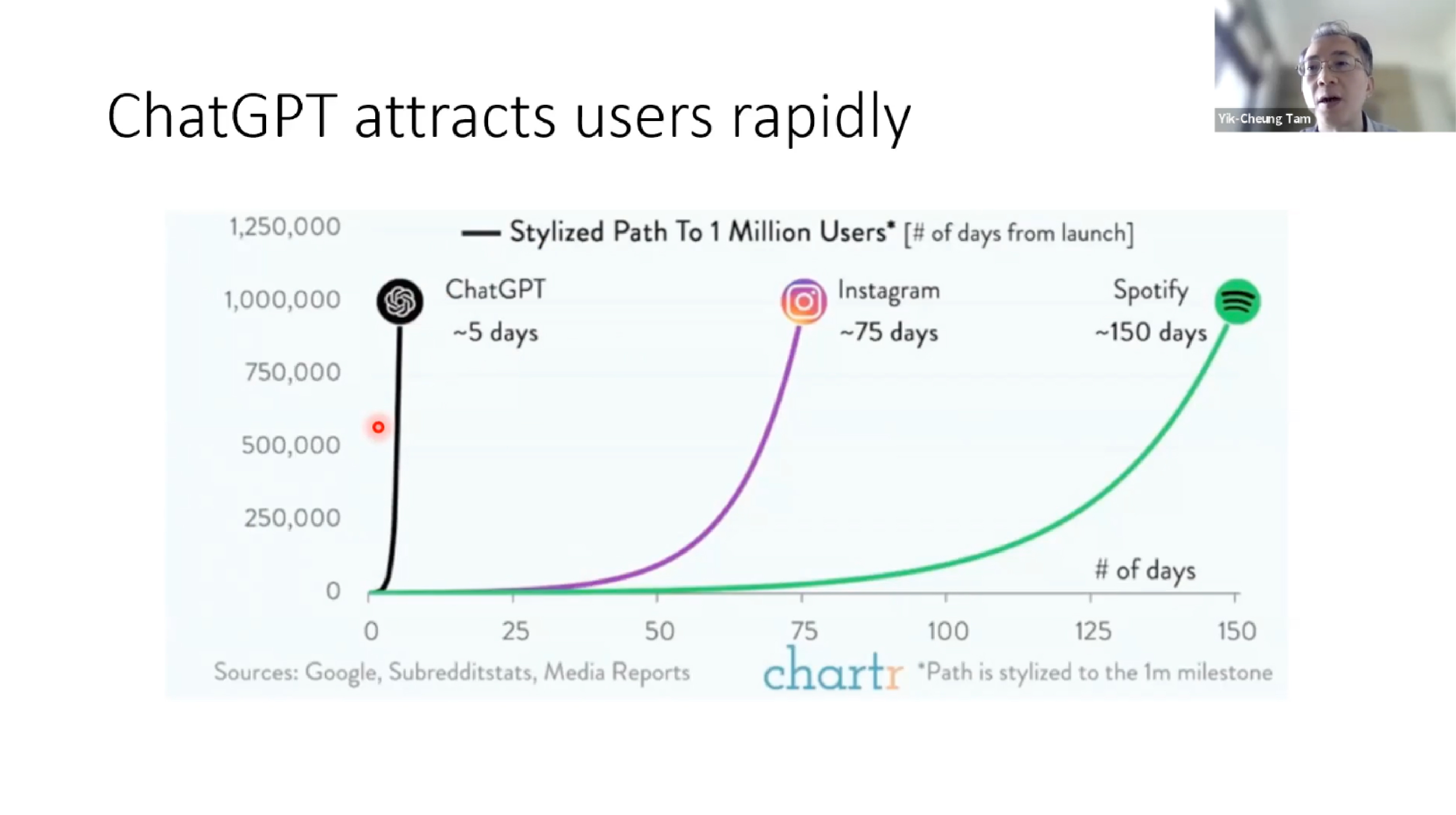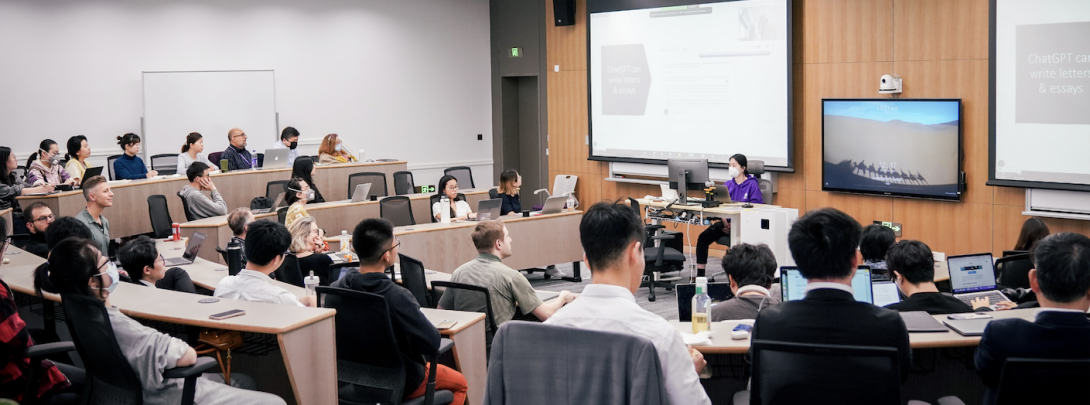Artificial intelligence-powered ChatGPT, the popular chatbot developed by OpenAI, has attracted a lot of attention lately, but how exactly does it work? On March 10th, NYU Shanghai hosted an exciting open talk by Professor of Practice in Computer Science Yik-Cheung (Wilson) Tam entitled “ChatGPT and Large Language Model: Achieving Human-Like Conversational Intelligence.” Associate Dean of Arts and Sciences Olivier Marin introduced Tam’s talk, which was attended by more than 100 participants in person and online.

Tam introduced that ChatGPT is built on top of computer programs called “Transformers” that enable the machine to understand human language better. Tam stressed the importance of using good prompts to generate higher quality answers, emphasizing that different prompts could produce varying results. However, he also cautioned that ChatGPT may be prone to digital hallucinations, when AI systems produce something convincing but which is not factually-based. That makes it less reliable for generating credible information.
Tam explained ChatGPT’s evolution through the process of “Generative PreTraining” (GPT), which involves exposing the machine to vast amounts of data, ChatGPT acquires a diverse range of skills and knowledge, including syntax, coreference, lexical semantics, basic reasoning, and mathematics. The model then generalizes this knowledge and commits them to memory. However, even with this extensive pretraining, at this stage ChatGPT is not yet proficient at answering all questions or comprehending all human instructions. Further “finetuning” is necessary to develop its full capabilities.

Tam’s talk generated a lot of interest among the audience, who asked about learning materials and classes for ChatGPT. Tam recommended starting with Machine Learning, Natural Language Processing, and Reinforcement Learning - courses offered at NYU Shanghai. “Once you have a grasp of the underlying theories behind ChatGPT,” Tam explained, “you can explore the source code and try running it on your own data.”
Associate Professor of Contemporary Global Media Anna Greenspan, who moderated the talk, said at this transitional moment for AI technology, it is crucial for universities like NYU Shanghai to discuss the implications of the popularization of technologies like ChatGPT. “This is extremely exciting and incredibly interesting,” she said. “It is also deeply scary, challenging and difficult. It is our job as a university to discuss it from as many different angles as we can.”
Greenspan added that there will be more opportunities on campus to explore AI’s potential. The Center for AI and Culture is planning upcoming talks on topics such as how artists are using AI, the politics of AI, AI skepticism and AI ethics.
----------
Video recording of this talk is available for viewing here.


